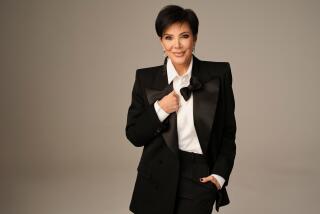Potential Leaders Are Plentiful on Sidelines
- Share via
In addition to the small group of men who already exert a profound influence on civic life in Los Angeles without holding any office, there is a larger, less defined cadre who are coming into power or making themselves felt from the margins.
Some are looking for a way to amplify their role in Los Angeles’ life. Gary Winnick, for instance, struck it rich with his company, Global Crossing Ltd., and recently topped the Los Angeles Business Journal’s list of L.A.’s richest people. In the past, he has not been a major player politically, but he’s young and confident--arrogant is the word his rivals use--and some observers see him inevitably becoming more of a player.
Michael Milken, the onetime junk bond king who pleaded guilty to six felony securities violations, is on the other side of his career arc, but he still has plenty of influence. He has ties to many of America’s richest people--indeed, many of them got rich with his help--and his Milken Family Foundation is increasingly a source of assistance to city governments, school districts and health organizations looking for help. He keeps a low profile, but has the ear of politicians, such as Mayor Richard Riordan, and has mentored many business leaders, including Winnick.
Meanwhile, Los Angeles’ billionaire cadre is always shifting, moving potentially important players on and off stage. Paul Allen, the co-founder of Microsoft, resides here part of the year and is wading into the city’s cable television industry. David Saperstein, who founded Metro Networks, recently put down roots in Holmby Hills, where he is building a 45,000-square-foot house with a ballroom big enough to hold 250 people.
Allen and Saperstein are names to watch, as are less rich but generous benefactors--people such as Stewart and Linda Resnick (he runs the Franklin Mint), Michael Eisner of Disney, and real estate and sports investor Ed Roski.
In addition to the super-rich and the merely very rich, some lobbyists and policy wonks make their mark on local affairs, usually on an issue-by-issue basis. And at least two up-and-comers are much discussed in power corridors because they combine access to money with natural political skills.
Henry Cisneros, a former secretary of housing and urban development, recently joined Univision as its president and chief operating officer. Cisneros, having settled a nettlesome special prosecutor investigation that dragged on for years, seems poised to occupy an increasingly important place in local politics--helping extend the reach and influence of his very private boss, Jerrold Perenchio.
Articulate and dapper, Cisneros is already making the civic rounds. On one night alone last week, he dropped by a party for Rep. Henry Waxman (D-Los Angeles), then scooted across town to a party for former Secretary of State George Shultz. The latter event took place at Greenacres, the home of billionaire Ronald Burkle.
Cisneros is not commenting on his role, however. That’s because Perenchio not only keeps a low profile, but also insists that his executives do the same.
If Cisneros is the public projection of Perenchio, Tim Leiweke is the Los Angeles face of Staples Center and its two principal owners--media mogul Rupert Murdoch and Denver billionaire Phil Anschutz. Leiweke navigated the political minefield to build that arena and has since managed to ingratiate its management with powerful people and former foes. He even convinced one of his bosses, the fiercely competitive Murdoch, to donate to Disney Concert Hall, an unnatural move for the Fox owner, but one that helped make Leiweke friends among the city elite.
One mark of Leiweke’s skill: Admirers include Riordan and City Councilwoman Rita Walters, two politicians who rarely agree on anything.
More to Read
Sign up for Essential California
The most important California stories and recommendations in your inbox every morning.
You may occasionally receive promotional content from the Los Angeles Times.














